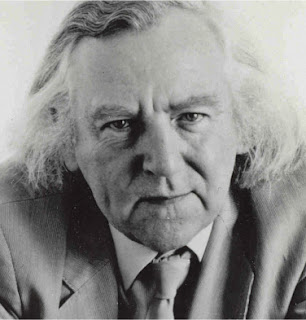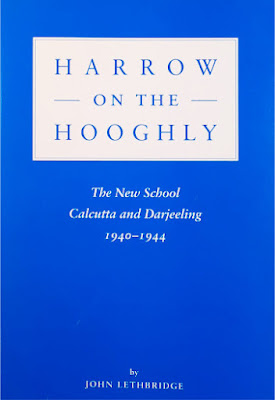Keith Waterhouse
 I wouldn't have felt the need to introduce Keith Waterhouse in my student days. Back then, he could scarcely have been more omnipresent, as a writer. His scriptwriting, with Willis Hall and others, was all over London's West End theatre land, as well as television. In fact, only 3/4 years ago I enjoyed a production of one of his best known plays, Jeffrey Bernard is Unwell, by a rep company locally. He was a giant of journalism, as a columnist for the Daily Mirror and later the Daily Mail. Though not listed below, there are half a dozen published collections of his newspaper pieces. And he wrote 17 novels (I'm including the two Pooter books in this regard). But when he died in 2009, while he received many respectful tributes, it didn't make the waves it would have done even only a few years previously. His books were already hard to find, even in one of the larger Waterstones. I suspect he's been branded a man of his time, meaning the Sixties, as far as novels are concerned, because of his one well known novel, Billy Liar, which was only his second book. That book unbalances the big picture; its celebrity derives from the film which was made, and then a long lasting presence in school reading lists.
I wouldn't have felt the need to introduce Keith Waterhouse in my student days. Back then, he could scarcely have been more omnipresent, as a writer. His scriptwriting, with Willis Hall and others, was all over London's West End theatre land, as well as television. In fact, only 3/4 years ago I enjoyed a production of one of his best known plays, Jeffrey Bernard is Unwell, by a rep company locally. He was a giant of journalism, as a columnist for the Daily Mirror and later the Daily Mail. Though not listed below, there are half a dozen published collections of his newspaper pieces. And he wrote 17 novels (I'm including the two Pooter books in this regard). But when he died in 2009, while he received many respectful tributes, it didn't make the waves it would have done even only a few years previously. His books were already hard to find, even in one of the larger Waterstones. I suspect he's been branded a man of his time, meaning the Sixties, as far as novels are concerned, because of his one well known novel, Billy Liar, which was only his second book. That book unbalances the big picture; its celebrity derives from the film which was made, and then a long lasting presence in school reading lists.It may be that he becomes a paragraph in histories of Sixties culture, while most of his books if not all of them, go out of print. Which would be a massive disservice to him. It's true that his novels do revel in their times, first in his native Leeds, then in London which he came to love - Fleet Street, Soho; streets, pubs and clubs; the shysters and con men, the hopeless dreamers, the feckless chancers. Yes, the world is very different now. But his books, especially the mature ones, shouldn't be neglected. For a start, they're funny. And although his humour might seem bleak at times, and his endings bittersweet, behind his sardonic observations of people's behaviour, he always saw the human side of things. He has a certain kind of sympathy even for his villains. Secondly, he experimented with the form, and this is an aspect of his writing which I feel has never been properly appreciated. In some of his later books, he does interesting things with viewpoints and perspective (see Thinks, for an obvious example). Today he'd be called very 'meta'. But they're never just writing exercises. Lastly, and most importantly, he's a wonderful crafter of the language. This also goes largely unrecognised, despite writing one of the cardinal manuals of newspaper style. Thanks to his background in journalism, his prose is all about conciseness and avoidance of verbosity, and a fantastic ear for how people talk.
Here's the full list of Keith Waterhouse novels, somewhat more accurate than what is currently available on his dismal Wikipedia page. He is my most read author, but naturally there are others whose books I've read extensively. I have wondered if I was getting too OCD with any of them; I've read all his novels, and I read Keith Waterhouse's last few novels in the order in which they were published. But I was saved from being excessively completist by discovering via Amazon that someone recently found an early unpublished novel in his archives, written back in his Leeds days. Looking into it, it seems to be a bit of a mess, and clearly he never intended it to be published. I'm happy to respect his wishes and leave it alone, and off this list.
- 1957 There is a Happy Land *
- 1959 Billy Liar
- 1963 Jubb
- 1968 The Bucket Shop
- 1975 Billy Liar on the Moon
- 1978 Office Life *
- 1981 Maggie Muggins *
- 1983 In the Mood *
- 1983 Mrs. Pooter's Diary *
- 1984 Thinks *
- 1986 The Collected Letters of a Nobody
- 1988 Our Song
- 1990 Bimbo *
- 1992 Unsweet Charity
- 1997 Good Grief
- 2001 Soho
- 2003 Palace Pier

The list doesn't cover many other published books, most of them being collections of his newspaper columns, or playscripts. But I will add for your consideration these non fiction works; a couple about the English language, and his two volumes of autobiography.
- 1989 Waterhouse on Newspaper Style
- 1991 English Our English (And How to Sing It)
- 1994 City Lights *
- 1995 Streets Ahead
My memory of many of them is too faded to offer detailed comment, but I've asterisked the ones which made an impact on me, one way or another. Some, because they were funny, others because they were sharp and full of ideas. All of them, because they were damn well written. But then, I could say that about virtually all of his books, asterisked or not. If there's any reason for people to carry on reading him, it's because he was a very, very good writer.



Comments
Post a Comment